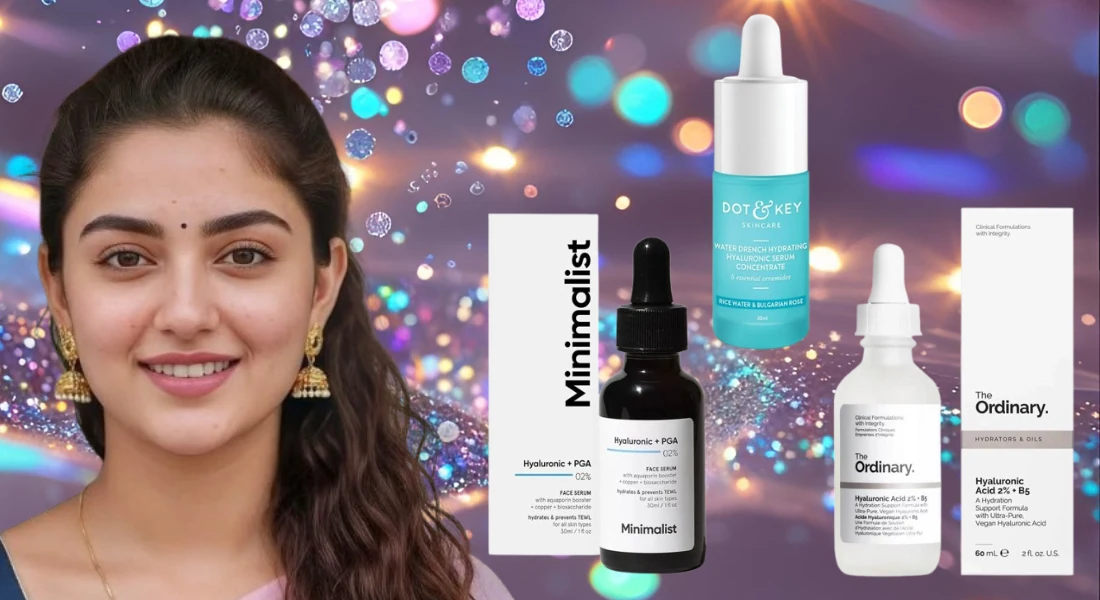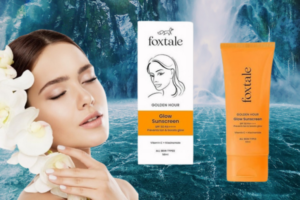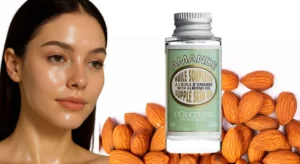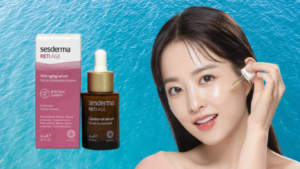Is hyaluronic acid good for oily skin: Yes and it may be one of the best solutions you can add to your skincare routine. Hyaluronic acid (HA) was first discovered in the early 20th century when scientists noticed its incredible ability to hold water. Since then, HA has been widely used in medicine and eventually skincare. Its uniqueness lies in the fact that it can hold up to 1000 times its weight in water – making it one of the most powerful hydrators known.
The first topical HA formulas were designed for healing and hydration but they quickly became popular in cosmetics for their ability to plump skin, smooth wrinkles and restore moisture. Modern serums are designed with varied sizes of hyaluronic acid molecules, allowing hydration to work on both the skin’s surface and deeper layers.
How Hyaluronic Acid Serum Works with Oily Skin
look at what actually happens inside the skin when HA is applied.
The Skin Process
1. Hydration Magnet Hyaluronic acid is a humectant, meaning it attracts water molecules from the environment and the deeper layers of your skin. When applied as a serum, HA pulls this water into the upper skin layers, leaving them plump and refreshed.
2. Balancing Oil Production Oily skin often suffers from dehydration underneath. The skin senses this lack of water and overcompensates by producing more oil. By delivering the right level of moisture, hyaluronic acid helps regulate oil activity, which reduces greasiness and minimizes breakouts. That’s why is hyaluronic acid good for oily skin is answered with a confident yes.
3. Strengthening the Skin Barrier A healthy barrier protects skin from pollution, dust, and bacteria. Oily skin can have a weakened barrier from over-cleansing or acne treatments. HA restores balance by binding water to cells, repairing the barrier and making the skin less reactive.
4. Soothing and Healing Because HA retains moisture. it reduces irritation, redness and post-acne marks. For oily, acne-prone individuals, this means faster recovery after breakouts and smoother overall texture.
How Hyaluronic Acid Serums Are Made
1: Natural Inspiration
Originally, hyaluronic acid was found in animal tissues. Today, however skincare brands mostly use bio-fermentation (a process similar to how yogurt is made) to produce HA in labs.
2: Fermentation Process
Safe bacterial strains (commonly Streptococcus or similar types) are cultivated in a nutrient-rich medium.
As they ferment, they naturally produce hyaluronic acid as a by-product.
This HA is then carefully separated, purified, and sterilized to remove any bacterial residue.
3: Adjusting Molecular Size
Not hyaluronic acid molecules are the same size.
Larger HA molecules stay on the outer layer of skin, giving quick hydration and a smoother look.
Many serums combine different molecular sizes for multi-layer hydration.
4: Formulation into Serums
The purified HA is blended with water and stabilizers to form a lightweight, fast-absorbing serum. Brands may add:
Soothing agents like aloe vera or green tea
Antioxidants like Vitamin C
Moisture boosters like glycerin or polyglutamic acid.
This process results in a serum that is moisturizing, stable in texture, and gentle enough for oily as well as sensitive skin.
Why This Matters for Oily Skin
The bio-fermented HA used in serums is gentle, pure and non-comedogenic.
By penetrating the skin layers, it reduces dehydration that often hides beneath oily skin.
The combination of different HA molecule sizes ensures both instant freshness and long-term balance.
So, the next time you ask yourself “is hyaluronic acid beneficial for oily skin?” the answer is worth exploring. Always remember: it delivers hydration at different depths, balances oil production, and strengthens the protective skin barrier. And all of this is possible thanks to the carefully designed serum-making process in modern labs.
Is Hyaluronic Acid Good for Oily Skin
This is one of the most common skincare questions and the answer is a resounding yes. Many people confuse oil with hydration but oily skin can still be dehydrated. In fact, lack of water can trigger the skin to produce more oil, leading to breakouts and shine.
Here’s why hyaluronic acid is a game-changer for oily skin:
Hydration without heaviness: It delivers water into the skin instead of oil, so you stay moisturized without any greasy feeling.
Balances sebum: Well-hydrated skin sends signals to oil glands to slow down, which can reduce excess shine.
Supports acne-prone routines: Works perfectly alongside acne treatments that usually dry out the skin.
Non-comedogenic: It doesn’t clog pores, so it’s safe even for sensitive or acne-prone skin.
Key point: If you’ve been wondering, is hyaluronic acid good for oily skin? — the answer is yes, because it hydrates deeply, balances oil production and keeps skin fresh and calm.
Best Hyaluronic Acid Serums in India
Let’s settle the great debate right now: is hyaluronic acid good for oily skin? Absolutely! Indian skin battles humidity, pollution, and excess shine daily. After testing dozens, here are 3 standouts (including a hidden gem!) that balance, plump, and protect oily Indian skin:
1. Dot & Key Hydrating Hyaluronic Acid Serum With Vitamin C + E.
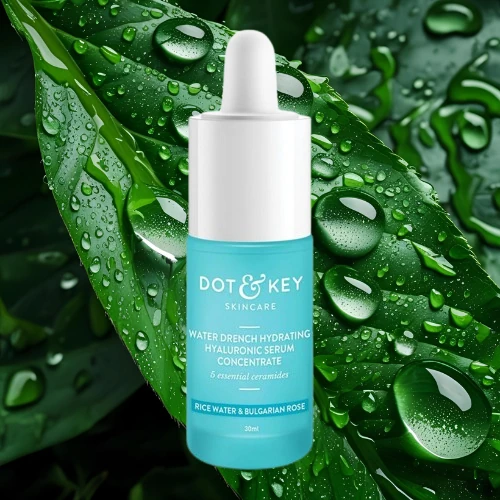
Price on Amazon
This serum blends hyaluronic acid with antioxidant-rich Vitamin C and E, delivering hydration while also supporting collagen defense and brightening uneven skin tone. The lightweight texture absorbs quickly, making it suitable for daily use without leaving residue. Ideal for those seeking both moisture retention and environmental protection in one formula.
Verdict: Is hyaluronic acid good for oily skin? Yes! It quenches dehydration while feeling weightless.
2. Minimalist 2% Hyaluronic Acid + 1% PGA
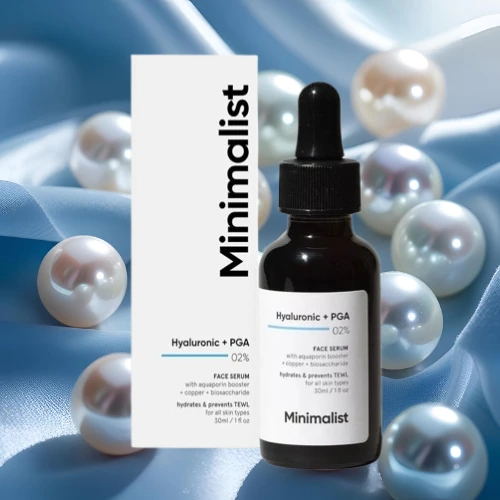
Price on Amazon
Why it shines for oily skin: Meet the “moisture lock” duo. While HA hydrates, Polyglutamic Acid (PGA) – a powerhouse humectant – seals it in 4x longer. The gel-liquid texture vanishes into skin, making it a top pick for combo/oily types.
Oily Skin Verdict: “is hyaluronic acid good for oily skin?” Yes, with science. Fights dehydration-induced grease effectively.
3. The Ordinary Hyaluronic Acid 2% Serum
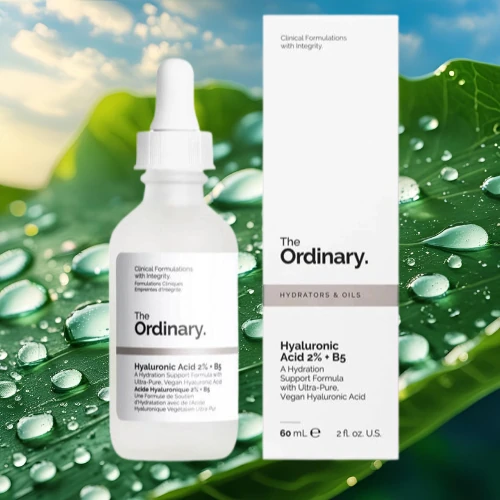
Price on Amazon
Shining for oily skin: No frills, all function. This global favorite uses 3 molecular weights of HA to hydrate surface-to-deep layers. Vitamin B5 soothes acne-prone or sensitized skin – common issues for oily complexions. Slight initial tackiness fades fast, leaving a supple, non-greasy finish.
For Oily Skin Result: This ordinary hyaluronic acid serum Ideal for active-heavy routines.
Pros & Cons
Dot & Key Hydrating Hyaluronic Acid Serum
. Deep hydration with multi-level HA 👍
. Antioxidants help fight oxidative stress 👍
. May not suit very sensitive skin due to Vitamin C ❌
. Results can take weeks for visible brightening ❌
Minimalist 2% HA + PGA Serum
. Affordable and high strength 👍
. Works well for oily skin 👍
. Can feel a little sticky on over layers of serum. ❌
The Ordinary Hyaluronic Acid 2% + B5
. Boosts hydration with multi-molecular HA 👍
. Lightweight, layers well under other skincare 👍
. Can feel a little sticky on some skin types ❌
. May not be enough for extremely dry skin ❌
Why This Matters for Your Oily Skin
“But won’t hydration make me oilier?” Nope! Is hyaluronic acid good for oily skin? Science says YES. Hyaluronic acid serums work this rotation by:
1. Plumping skin from within
2. Balancing sebum production
3. Fortifying against pollution/AC damage
Indian skin hack: Apply serums to damp skin post-cleansing.
My Final Thoughts: Is Hyaluronic Acid Good for Oily Skin
Oily Skin’s Hydration Revolution
Forget everything you thought about “moisturizing = greasy.” Is hyaluronic acid good for oily skin? Unequivocally – and in India’s climate, it’s essential. Start with Dot & Key for simplicity or Minimalist for innovation.
✨ Ready to transform your routine? Grab an HA serum, apply daily to damp skin, and meet your balanced, radiant complexion! ✨
This post contains affiliate links – if you decide to click through and support naturalskincare.shop financially (at no extra cost to you), thank you! For more information, see our terms of service.
Disclaimer: This post reflects personal experience and is not intended as medical advice. Please consult a qualified professional for personalized skincare recommendations.

